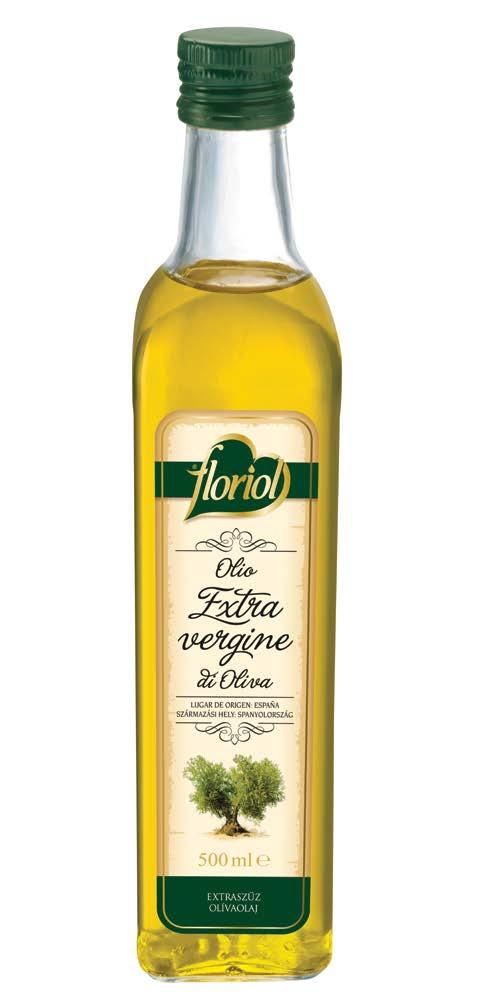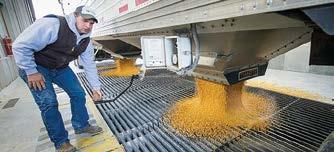
5 minute read
Smart and Sustainable Bunge

SMART AND SUSTAINABLE

Bunge, the world leader in sourcing, processing and supplying oilseed and grain products and ingredients, is pursuing a sustainable approach across its supply chain as an integral part of the move towards smart agriculture.
Founded in 1818, Bunge’s wide network feeds and fuels a growing world, creating sustainable products and opportunities across the globe for more than 70,000 farmers and the consumers they serve. The company is headquartered in St. Louis, Missouri and has 24,000 employees worldwide who stand behind more than 350 port terminals, oilseed processing plants, grain facilities, and food and ingredient production and packaging facilities around the world.
Through the three businesses—agribusiness, fertiliser, and food products—the company has established a leading global presence in the farm-to-consumer food chain. Bunge is the world’s largest oilseed processor, the world’s number one seller of bottled vegetable oil to consumers and the largest producer and supplier of fertilisers to farmers in South America.
Connecting farmers and consumers globally, Bunge brings food and feed products from where they are produced to where they


are needed. Its integrated value chain links origination, storage and transportation to activities further down the line, including processing, packaging and distribution. This helps farmers and communities prosper, puts better food on the shelf, increases sustainability, strengthens global food security and improves diets.
Balanced portfolio
Bunge’s operations include buying grains, oilseeds and soft seeds from farmers, then storing, transporting and selling them to domestic and export customers. The company also provides financial, risk management and logistics services. Its global network of facilities spans six continents and includes grain elevators, oilseed processing plants and strategically located port terminals.
The company’s balanced global footprint includes a particularly strong local presence in the three largest soybean oilseed producing countries in the world: the US, Brazil and Argentina. Bunge operates crush plants around the world – at both origins and destinations, and its processing capacity covers South America, North America, Europe and Asia-Pacific, including both soy crush and soft seed crush.
Bunge provides vital links in the chain from producer to consumer by sourcing oilseeds and crushing them to produce vegetable oils and protein meals. These are used to produce animal feed, make cooking oils, margarine and shortening and in the biodiesel industry.
From long-standing staples to innovative new products, Bunge’s margarines, edible oils, bakery and grain brands meet the exacting demands of commercial customers and the emerging taste and nutrition trends of consumers in some of the world’s largest markets.
Smart transformation
As agriculture, on a global scale, is shifting towards the adoption of smart solutions as well as the Industry 4.0 principles, Bunge makes the most of the rapid advancements in technologies and applications that help to increase productivity and optimise cost.
Driven by opportunities to increase transparency and efficiency for customers, global agribusinesses are turning to emerging digital





technologies – including blockchain and artificial intelligence options – to reduce resource- and time-intensive processes associated with the global agricultural commodity value chain.
In line with this paradigm shift, Bunge has partnered with the other three largest grain traders in the world - Archer Daniels Midland Company (ADM), Cargill, and Louis Dreyfus Company (LDC) with the goal of digitally transforming their supply chains. The four companies are set to replace paper-based processes with technological alternatives. The process aims to increase visibility and transparency across supply chain movements, ultimately trying to improve the experience for customers and consumers. The companies also seek broadbased industry participation to promote global access and adoption.
Sustainable business
Sustainability is an integral part of the move towards smart agriculture and Bunge integrates sustainability across every level of its value chains. Bunge’s approach to responsible supply chains includes a robust vision for sustainable agriculture and a commitment to end deforestation worldwide by 2025. It calls for value chains that are transparent, verified sustainable and which create positive impacts on the ground while advancing the spirit of the Sustainable Development Goals.
Sustainability is also key in terms of internal operations. In January 2021, Bunge announced a 10-year agreement with Direct Energy Renewable Services to use renewable energy at its Fort Worth, Texas oils packaging facility. This initiative will offset 100% of Bunge’s power usage in that location with an equivalent amount of Renewable Energy Credits (RECs) that are derived from Texas wind power. Beginning in August of 2021, Bunge’s Fort Worth plant energy will be sourced from a local wind farm.
“We strive to do the right thing in every decision we make, and in every region where we work. By optimising our facilities and embracing new technologies and sources of energy, we are confident we will be able to reduce our global environmental footprint and to improve value to our customers,” said Rob Covelo, Bunge’s Chief Sustainability and Government Affairs Officer. “When looking to the future, Bunge will continue to invest in and expand the use of wind and solar energy, as well as other sustainable alternatives across its supply chains.”
Reducing greenhouse gas emissions through the use of wind, solar and other sources of renewable energy is one of the many ways Bunge is working to build and implement innovative activities and solutions that advance its global goals of reducing water, waste, emissions and energy in target amounts by 2026. n













